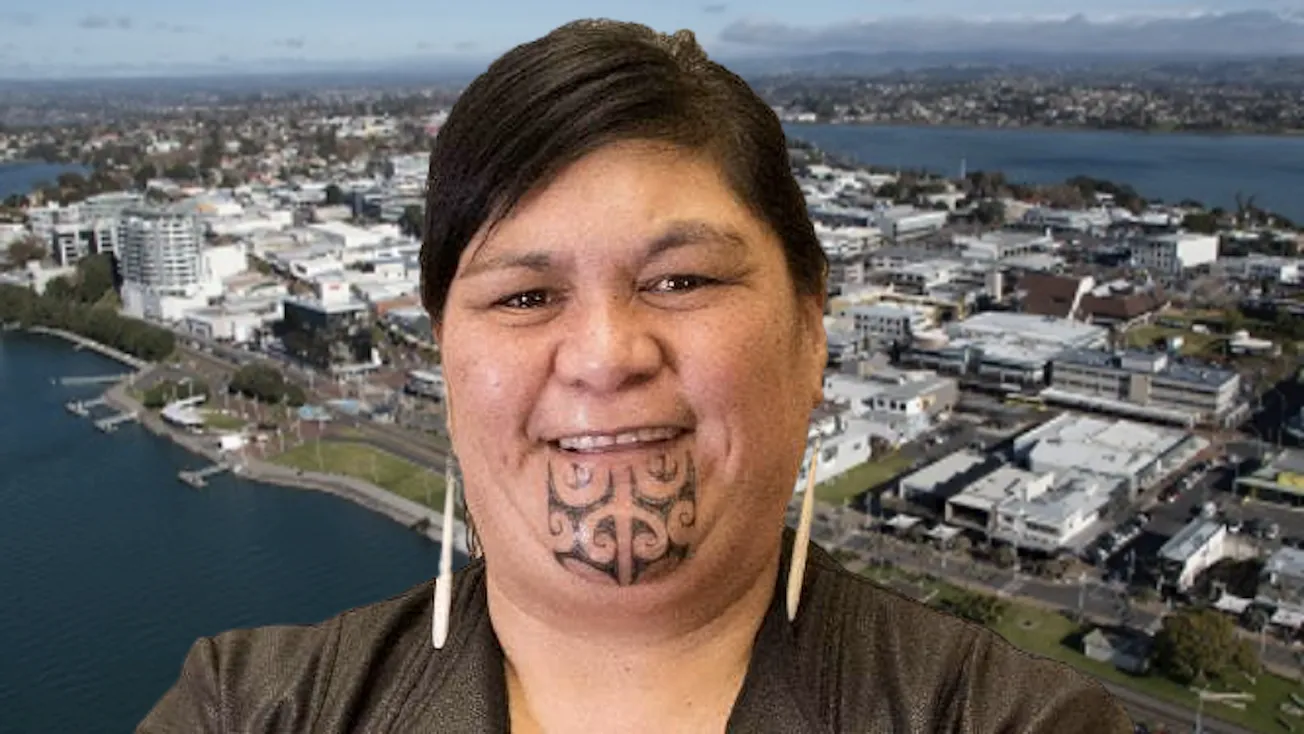Table of Contents
Dr Muriel Newman
nzcpr.com
On election night, Jacinda Ardern promised to govern for all New Zealanders. Yet here she is, barely three months later, using Parliamentary urgency to crush a fundamental democratic right of New Zealanders.
Not only that – she is misleading the country about the reasons for the law change.
The announcement by her Minister of Local Government Nanaia Mahuta that the right of ratepayers to veto decisions by councils to establish Maori wards would be abolished, is an unprecedented attack on local government democracy.
The reasons given for the law change are lies – there is no nice way to describe it.
In her press release the Minister says, “Polls have proven to be an almost insurmountable barrier to councils trying to improve the democratic representation of Maori interests. This process is fundamentally unfair to Maori. Increasing Maori representation is essential to ensuring equity in representation and to provide a Maori voice in local decision making.”
Yet the facts tell a different story.
According to a survey carried out by Local Government New Zealand in October 2020, the proportion of Maori elected to local authorities is now 13.5 percent. With the 2018 census showing Maori as 13.7 percent of the adult population, there is no under representation.
Quite simply Maori seats are not needed to increase Maori representation because Maori are quite capable of getting elected in general seats.
Since it is inconceivable that the Minister of Local Government would not be aware of these statistics, the question is, why would she be claiming that Maori are under-represented – unless her view of fair representation is where Maori occupy half of council seats. If 50:50 partnerships is her intention, then she should state it. She should not mislead the public – although that is becoming a hallmark of the Ardern government.
Local government veto rights were introduced into law by Helen Clark’s Labour Government in 2002 as a constitutional safeguard to protect the voting system.
In any democracy the voting system is sacrosanct and needs protecting to prevent those in power from manipulating it. That’s why democratic convention requires decisions to change the electoral system to have a higher threshold than ordinary decisions.
The veto rights in the Local Electoral Act take the form of petition rights. Ratepayers can challenge a council decision that changes the electoral system if 5 percent of voters support a petition calling for a binding referendum. The community then gets to vote – either supporting the council’s decision or opposing it.
Veto rights were applied to two new provisions in the Act that changed the electoral system.
The first enabled councils to introduce STV voting. Since single transferable voting completely changes the way the voting system operates the veto right safeguard was applied.
The second provision requiring the veto safeguard was the introduction of Maori wards. Any council that establishes Maori wards has to change the voting system to introduce the Maori electoral roll, since only voters on the Maori roll can vote for candidates standing in the Maori seats.
To justify the abolition of petition rights, the Minister is claiming, “The current system has a different set of rules for establishing Maori and general wards and that uneven playing field needs to change. The process of establishing a ward should be the same for both Maori and general wards.”
But this is a misrepresentation of the truth. It is inconceivable that the Minister would not know that petition rights only apply when the voting system is changed – especially as she was in Parliament when they were introduced into law.
Since establishing Maori wards changes the voting system, whereas establishing general wards does not, petition rights only apply to Maori wards, not general wards.
If Jacinda Ardern is truly sincere about making the provisions for establishing Maori wards and general wards the same, then, to uphold her Prime Ministerial duty to protect New Zealand’s democracy, the petition right should be expanded to apply to the creation of general wards as well.
To remove petition rights exposes the electoral system to abuse by self-serving politicians – the very reason the safeguards were introduced in the first place. Some are now arguing however, that voting system manipulation is the underlying objective for Labour’s radical change.
Without petition rights, there will be nothing to stop councils from changing the electoral system for their own advantage. The Maori seats in Parliament are generally pro-Labour. The local body Maori seats would be no different. Once petition rights are abolished, left-leaning councils could use Maori wards to create a permanent balance of power in Labour’s favour.
If this indeed is their sinister objective, the second stage of these reforms could well see the removal of the restriction on the number of Maori seats that a council can create, thus opening up the possibility of 50:50 representation. After all, that is the stated objective of the former New Plymouth Mayor Andrew Judd and other sovereignty extremists who already have the ear of Labour.
If the Government opened it up to 50:50, it would not be long before Maori gained full, unconstrained power over local authorities – including control of the rating system.
Consider for a moment the implications of this. There would be nothing to prevent the introduction of a differential rating system based on race – and there would be no recourse because those registered on the general could not vote them out.
Petition rights are a hugely important safeguard for the integrity of local government democracy and yet they are on the cusp of being abolished.
The bottom line is that the reasons being given by the Government for removing petition rights are lies. So, what is their real agenda? Has Labour done a deal with iwi leaders for local government partnerships? Is this all about Treaty politics – the first step towards Maori control of local government?
And is this the real reason this law change was not signalled before the election?
Audrey Young, the Herald’s Chief Political Reporter is scathing about this deceit:
“The Government has made a strong case for abolishing local voters’ ability to overturn a council’s decision to establish a Maori ward. So it is unforgivable that Labour did not put it in its 2020 election manifesto. Local Government Minister Nanaia Mahuta foreshadowed the move in November, within weeks of the October election. It was clearly on Labour’s agenda all along. It may be a divisive issue but there is no excuse for Labour having hidden it at the election. No doubt Labour feared it could strengthen the arm of Act or, more importantly, of New Zealand First and did not want to take the risk of saying what it wanted to do in case the issue cost it votes.”
The Maori ward provisions and the veto right safeguard were included in the Local Electoral Act by Parliament on 17 December 2002 after two years of community consultation.
During the Parliamentary debate, the Labour MP David Cunliffe explained that Maori wards could only be established with community support:
“there is a general referendum and a general trigger mechanism that means no Maori ward can be established unless a majority of all electors on the electoral roll say that should be the case… It has been done to continue an important constitutional principle, which states it is constitutionally appropriate for Maori wards to be established provided there is general support to do so.”
Nanaia Mahuta also spoke in the debate, stressing the importance of public consultation:
“This bill is about ensuring that all citizens in our country have a greater say and participation in what happens at local government level… At a local level it is about everybody having a say on what is happening.”
Her comments gave no indication that when she became the Minister, instead of “everybody having a say on what is happening” she would deny communities the right to engage – even those that have already achieved the 5 percent petition threshold and have demonstrated that they want their voices heard.
With Helen Clark’s Government going to such great lengths to involve the community in the law changes, Jacinda Ardern’s approach – to now abolish this constitutional cornerstone of local government democracy under urgency and with only token consultation – is scandalous.
To Jacinda Ardern, what the community thinks is evidently no longer important. It is only what Maori thinks that seems to matter. Is this really the way to govern for all New Zealanders – or was that just another feel-good soundbite?
Certainly, her new legislation, the Local Electoral (Maori Wards and Maori Constituencies) Amendment Bill, destroys the notion of community involvement. It is retrospective, so those tens of thousands of New Zealanders who have signed petitions established under the law calling for their councils to hold a referendum on Maori seats will have their democratic rights trampled underfoot by her jack-booted totalitarianism.
A vital democratic safeguard that Minister Mahuta voted into our Statute books two decades ago, is about to be extinguished by her authoritarian Government.
So, what is the national crisis that has triggered this use of the overwhelming power of the State to crush the democratic rights of New Zealanders?
It is the fact that citizens in nine local authorities out of 78 are wanting councils to consult their communities over whether they support Maori seats.
This week’s NZCPR Guest Commentator Dr Don Brash, a former political leader and Reserve Bank Governor, is appalled at the law change:
“Nanaia Mahuta announced that she doesn’t like the ability of ratepayers to demand a referendum, and intends to change the law. In the meantime, she simply told the local authorities where ratepayers were demanding a referendum to ignore the current law.
“This is outrageous behaviour. In the last few months, nine local authorities have voted to create Maori wards, and in all nine districts ratepayers have begun collecting signatures demanding a referendum. In at least four of those nine – Tauranga, Whangarei, Kaipara and Northland – substantially more than 5% of ratepayers have already signed a petition demanding a referendum. The Minister has made it clear that she intends to ram a law change through Parliament under urgency, with virtually no time for the public to have a say on the change.”
The reality is that there is no national crisis to cause the Government to change the law retrospectively, under urgency, and with no proper consultation. It is a total abuse of power. There is no other way of describing it.
To be legitimate, the abolition of crucial constitutional rights in a democracy requires a proper consultative process. If those rights are entrenched, that would include a public referendum of all voters or a super-majority of 75 percent of Parliament.
It is surely only in countries like North Korea that democratic rights are taken away illegitimately. Or is dictatorial decision-making the new face of Aotearoa in 2021 and beyond.
The Labour Party’s 2020 election manifesto promised “Labour will uphold local decision making in the democratic institutions of local government… Labour will ensure that major decisions about local democracy involve full participation of the local population from the outset.”
Election promises clearly no longer matter to Labour.
Last year, Jacinda Ardern reminded us that we are part of the team of 5 million. Her characterisation struck a chord. Kiwis want to be united by the things we have in common, not divided by our differences.
That’s the reason why communities oppose Maori wards. They don’t want to be divided by race. They will vote for anyone of any ancestry who earns their respect. But they do not want to be told that because they are or are not on the Maori roll, they can or cannot vote for a particular candidate. They don’t want to be segregated by the voting system – and, most importantly, they want to retain their right to tell their council that dividing their community by race is wrong.
Helen Clark wanted to strengthen local democracy through petition rights. Jacinda Ardern is using her absolute power to undermine democracy to further her socialist agenda. George Orwell’s 1984 has become Jacinda Ardern’s 2021.
PLEASE NOTE: Firstly, the Herald reports, that Labour will call Parliament into urgency on Tuesday for the first reading of the Bill to abolish local government petition rights. There will then be a one-week select committee process for public input before the Bill is passed into law. This compares with six months for most law changes. Since our next newsletter will not come out for another week, we would urge as many readers as possible to send in a submission opposing the Bill. It does not need to be long or complicated, but it is essential that as many people as possible oppose this appalling abuse of power by Labour that well and truly breaks their election promise: “Labour will ensure that major decisions about local democracy involve full participation of the local population from the outset.” The information about where to send submissions and the timing should be available HERE – which is the link to Parliament’s list of Bills that are open for submissions – once the Select Committee has met and set the timetable.
And secondly, please feel free to email MPs to share your concerns about these developments – the PM and Labour MPs to urge them to withdraw their Bill, and National and ACT to urge them to campaign against this law change and pledge to either remove Maori ward provisions entirely, or at the very least, re-instate petition rights. All MP email addresses can be found HERE.
Thank you so much for helping to fight for democracy!
Please share this article so that others can discover The BFD.









